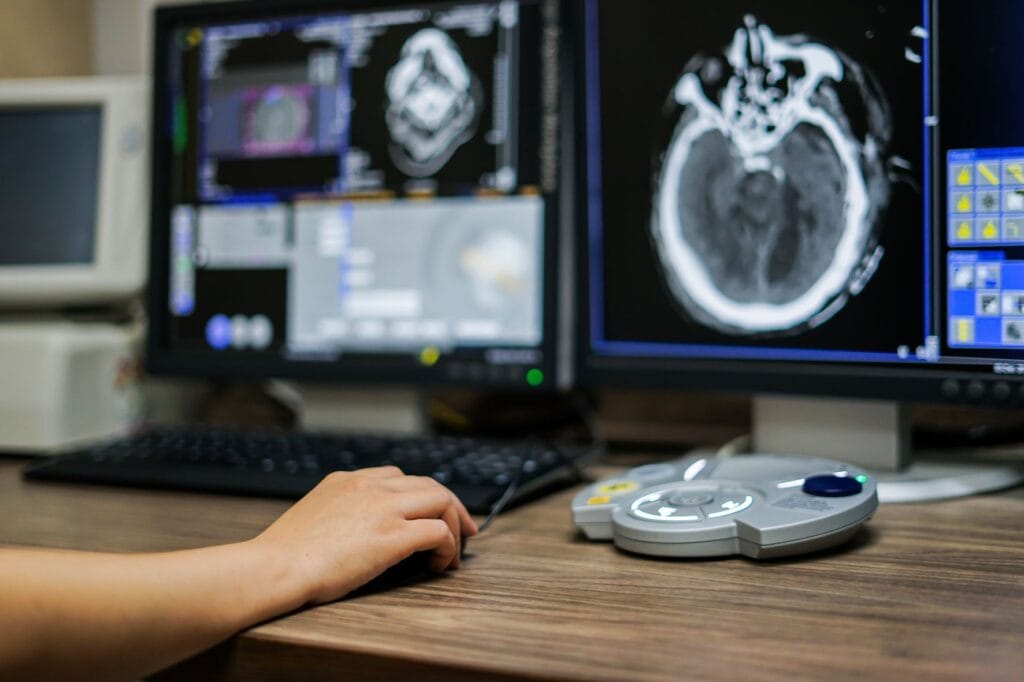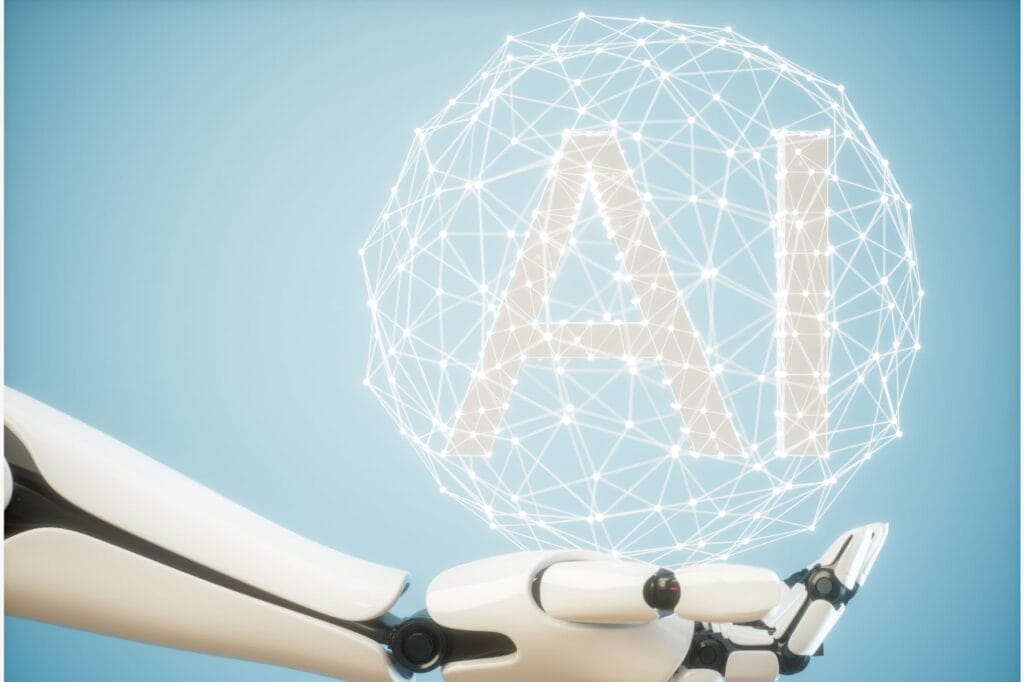Artificial Intelligence (AI) is transforming healthcare, creating possibilities that once seemed confined to science fiction. From diagnostics and patient care to personalised treatments, AI’s potential to revolutionise healthcare has generated both excitement and caution. This blog explores the current role of AI in healthcare, its benefits and challenges, and whether AI can truly be the game-changer we’re hoping for.
Table of Contents
How Artificial Intelligence is Currently Used in Healthcare

AI has already begun to reshape various aspects of healthcare, from diagnostics to administrative tasks. A notable player in this space is Google DeepMind, which has spearheaded several groundbreaking projects in healthcare:
Diagnostics: AI-driven diagnostic tools are enhancing accuracy, especially in fields like radiology. For example, DeepMind collaborated with the U.S. Department of Veterans Affairs and the Moorfields Eye Hospital in the UK to develop AI models capable of diagnosing over 50 eye conditions as accurately as human doctors. This model acts as an early warning system, helping doctors detect diseases like macular degeneration and diabetic retinopathy.
Patient Management: DeepMind’s Streams app, deployed in UK hospitals, analyzes patient health data to monitor for acute kidney injury (AKI). By alerting medical staff within minutes, Streams has significantly improved patient outcomes and reduced response times.
Predictive Analytics: DeepMind’s AlphaFold project, which accurately predicts protein folding, has transformative potential in drug discovery and disease research. AlphaFold’s predictive capabilities can speed up medical research, identifying potential treatments much faster than traditional methods.
Benefits of Artificial Intelligence in Healthcare

The benefits of AI in healthcare are profound, as it addresses some of the biggest challenges in the field:
Increased Accuracy and Reduced Errors: AI systems can process vast amounts of data quickly, identifying patterns that might be missed by human eyes. This ability can greatly reduce diagnostic errors, ultimately improving patient outcomes.
Cost Savings and Scalability: AI can cut down costs by making workflows more efficient. For example, McKinsey estimates that AI applications in healthcare could save up to $150 billion annually by 2026 in the U.S. alone.
Enhanced Accessibility: By aiding telemedicine and remote diagnostics, AI helps reach underserved populations, making quality healthcare more accessible.Support for Healthcare Workers: AI can help mitigate the burden on healthcare workers by assisting with data analysis and patient management, especially in high-demand areas.
Support for Healthcare Workers: Artificial Intelligence can help mitigate the burden on healthcare workers by assisting with data analysis and patient management, especially in high-demand areas.
Challenges and Ethical Considerations

While promising, AI in healthcare also brings complex challenges and ethical questions that must be addressed:
Data Privacy: AI requires large datasets, often containing sensitive patient information, which raises concerns about data security and patient privacy. Stricter data governance frameworks are necessary to protect patient information and ensure compliance with regulations like GDPR.
Algorithmic Bias: AI systems are only as good as the data they are trained on. Bias in data happens often due to the underrepresentation of certain demographics which can lead to biased outcomes, polarising the viewpoint of AI models, and potentially exacerbating health disparities.
Need for Human Oversight: While AI can support healthcare providers, human judgment is crucial for interpreting results. Over-reliance on AI could lead to situations where machine errors go unchecked.

Job Displacement: AI’s rise in healthcare has sparked concerns about potential job loss, especially in administrative roles. However, many argue that AI will augment rather than replace the workforce, creating new opportunities for skilled professionals.
Economic Impact of Artificial Intelligence in Healthcare

AI’s economic impact on healthcare is substantial, attracting investments globally and reshaping healthcare funding trends:
Investment Growth: Investments in healthcare AI reached nearly $6.6 billion in 2021 and continue to rise as AI technologies expand their reach into diagnostics, digital health, and biotechnology.
Cost-Effectiveness: AI’s efficiency in handling administrative tasks and streamlining processes contributes to significant cost savings across healthcare systems. AI-enabled solutions reduce wait times, optimize resource allocation, and, in many cases, improve the speed and accuracy of care.
Shift in the Healthcare Job Market: As AI integrates into healthcare, demand is growing for AI-specialized healthcare professionals, data scientists, and tech-savvy clinicians. The healthcare industry is adapting to these needs by developing training programs for emerging roles.
Future Prospects: Is Artificial Intelligence a Sustainable Gamechanger?
Looking ahead, AI’s potential in healthcare appears boundless. Its applications could soon include AI-driven drug discovery, where machine learning algorithms identify potential drug candidates faster than traditional methods, and robot-assisted surgeries, which promise precision beyond human capabilities.
However, for AI to remain a sustainable force in healthcare, certain conditions must be met. Regulatory standards must evolve in tandem with technology to ensure safe and ethical use, while investment in data infrastructure and unbiased datasets is essential. Only through careful development and ethical considerations can AI fulfill its role as a true game-changer in healthcare.
Conclusion: Is Artificial Intelligence a Gamechanger?

The answer depends on how healthcare systems, regulatory bodies, and industry stakeholders continue to manage AI’s integration. While AI has already shown incredible promise in reducing errors, saving costs, and making healthcare more accessible, it is not without its limitations. With continued investment, ethical safeguards, and thoughtful implementation, AI has the potential to revolutionize healthcare on a global scale.
We encourage our readers to share their thoughts! Do you see AI as a transformative force in healthcare? Join the conversation in the comments below.





5 Comments
The integration of AI technologies can significantly enhance patient care, streamline operations, and improve diagnostic accuracy. I’m excited to see how these advancements will shape the future of healthcare and improve outcomes for patients. Great read!
Thank you for your insightful feedback. We appreciate you taking the time to engage with our perspectives on the transformative potential of AI in healthcare and welcome any additional thoughts you may have.
The blog offers insightful perspectives on artificial intelligence’s transformative potential in healthcare. Overall, this is a crucial topic as AI continues to shape the future of healthcare!
Thank you for your thoughtful feedback. We’re pleased to hear that you found our perspectives insightful.